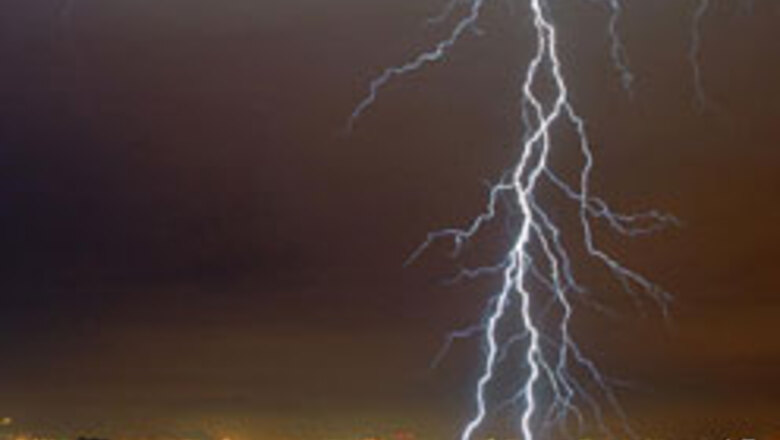
views
Champaign (Illinois): While most weather forecasters focus on the six or seven miles of earth's atmosphere where clouds drift and storms form, Jonathan Makela's sights are set much higher.
Makela, a University of Illinois electrical and computer-engineering professor, is working on a way to forecast the weather in the ionosphere, the region of Earth's atmosphere found about 45 to 600 miles above the planet.
What happens in the ionosphere so named because it is heavily ionised by the sun's radiation, can have dramatic effects on satellite communications, air travel and power grids.
However, forecasting of so-called space weather isn't very advanced. Scientists can now project what will happen about an hour or two in advance, Makela said.
"We're not there yet," he said adding, "We're at the stage that meteorology was 50 (years ago)."
The sun heavily influences space weather so Makela and fellow scientists at Cornell and Virginia Tech study what happens there and how it influences the ionosphere.
High levels of radiation passing through the ionosphere can knock out satellite-based communications, or the flow of electricity to homes and businesses on Earth.
A solar storm in 2003 left thousands of homes in Sweden without power while also disrupting radio broadcasts and airline flight schedules.
Makela and his colleagues have come up with a way to create a sort of ionospheric equivalent of the animated weather maps common to TV and the Internet.
They take digital images of variations in what's known as airglow over the Equator. Airglow is the weak light emitted by Earth's atmosphere, faintly visible at night in even the darkest skies.
Space weather changes the appearance of airglow.
The camera, known as the narrow-field ionospheric airflow imager, takes long-exposure images from an observatory in Chile.
"We just connect to the Internet every day and download data," Makela said.
Researchers' eventual goal is to be able to better predict space weather so communications companies, electric utilities and others can protect themselves from its effects.




















Comments
0 comment